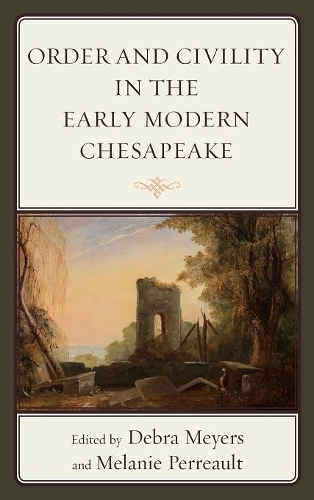
Order and Civility in the Early Modern Chesapeake
(Hardback)
Publishing Details
Order and Civility in the Early Modern Chesapeake
By (Author) Debra Meyers
Edited by Melanie Perreault
Bloomsbury Publishing PLC
Lexington Books
16th July 2014
United States
Classifications
Tertiary Education
Non Fiction
975.51802
Physical Properties
Hardback
218
Width 160mm, Height 238mm, Spine 21mm
463g
Description
Tise cutting-edge collection of essays in this volume represent the vast array of experiences in the Chesapeake region, encompassing the racial, class, ethnic, and gender diversity that characterized life in early Maryland and Virginia. Order and Civility in the Early Modern Chesapeake makes a significant contribution to the growing interest in the Chesapeake as an accurate indication of the English customs, rituals, and beliefs men and women brought to the New World. Ultimately, this study suggests that the multicultural Chesapeake created significant cultural, intellectual, and social norms that have shaped the diverse world of the American people.
Reviews
These articles provide ample room for reflection on how a tug-of-war between resistance to and assertion of social control led to order and civility in the Chesapeake. * Journal of American History *
This collection from established and emerging scholars offers fresh and sophisticated essays on the beliefs, legal systems, and labor systems of the early Chesapeake. This innovative organization makes the book a fruitful one, not only for scholars, but also for students who can use the essays to compare sources, arguments, and methods. -- Sarah Hand Meacham, Virginia Commonwealth University
This is a fine and provocative collection of essays from a band of largely junior scholars, newly minted Ph.Ds. and the like. All the essays in some way revisit the origins debate, and the nature and extent of unfreedom in seventeenth- and eighteenth-century Virginia and the Chesapeake, with the additional concentration on class and gender. These young scholars have not only produced some new interpretations of old arguments, they shift our attention from the antebellum period and black enslavement, which has dominated much of the scholarship for the last four decades, to the colonial period and unfree, non-black labor, particularly indentured and convict labor. We are reminded of the harsh realities of life for those unable to assert and maintain their legal freedom, such as wives separated from husbands, convict women, or those accused of witchcraft. These essays make abundantly clear that race was far from the primary determining factor in an age when freedom was far from universal and exploitation of the powerless was widespread. -- Larry Hudson, University of Rochester
Author Bio
Debra Meyers is professor of history and women's and gender studies and director of public history at Northern Kentucky University. Melanie Perreault is professor of history and associate provost at Salisbury University.
